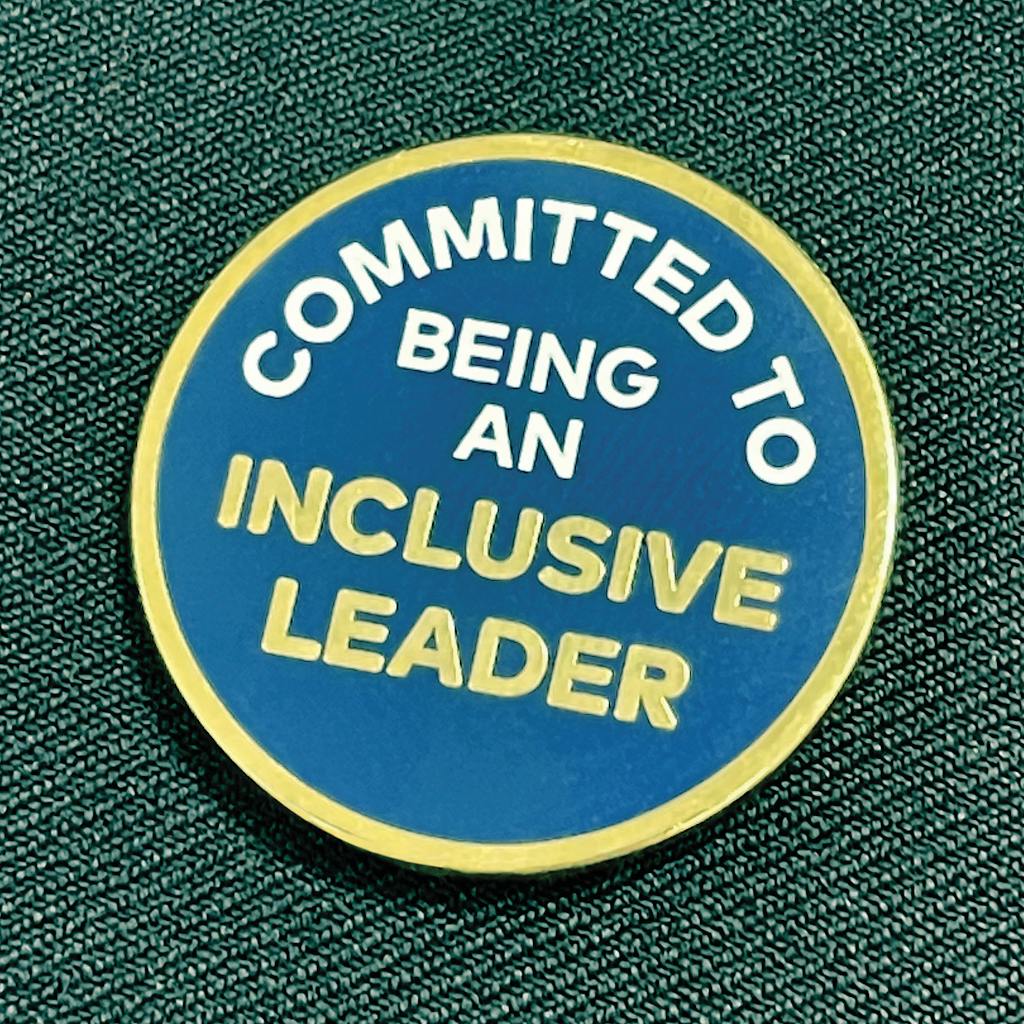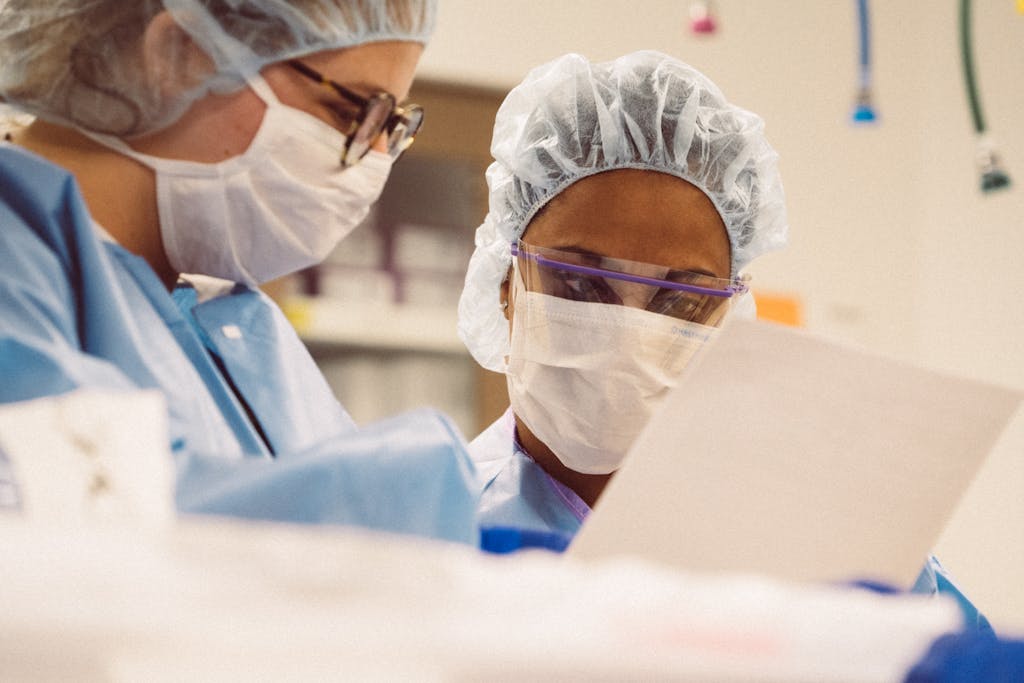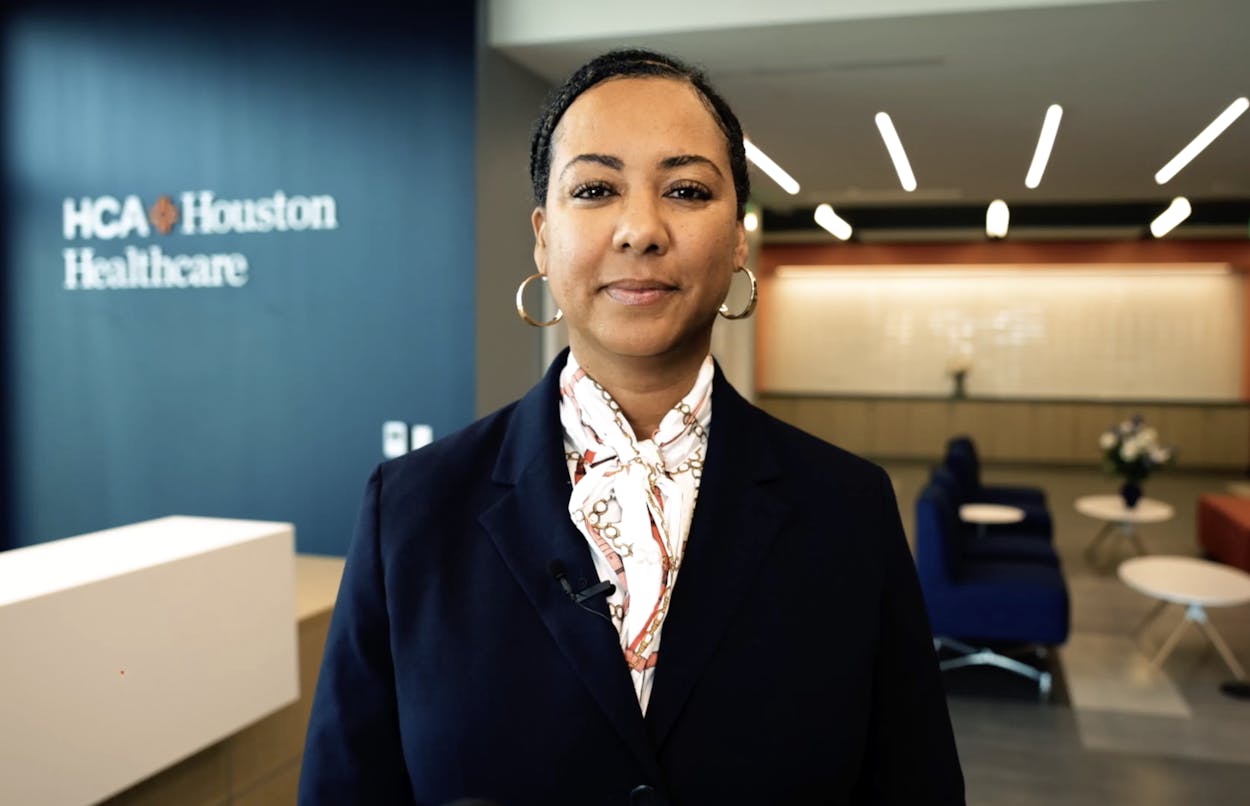When Samantha Maxie was growing up, no one used the word “microaggressions.” In fact, no one talked much about bias, either. People may have been aware of the stereotypes that define how we see those around us—particularly people of color—but, in Maxie’s experience, they never tried to get to the root of the problem.
“We just danced around those difficult conversations,” she says. “We never confronted the idea that some of our actions can be shaped by biases we may not even understand.”
Now, Maxie is determined to change that. For the last decade, the Navy veteran has spearheaded leadership development for HCA Houston Healthcare, one of Houston’s largest families of hospitals. HCA Houston Healthcare is committed to the kind of caring, inclusive community that both staff and patients deserve, and as such, the family of hospitals is investing ample resources in its people. Recently, that investment took the form of a class centered on conscious inclusion training.
In this course, nurses and staff learn how to confront their own biases and engage with even greater empathy and compassion instead of “dancing around” the tough conversations.
“What’s inspiring is that many people really do want to have these conversations,” Maxie notes. “And when we do, that’s how we form an even stronger family. At HCA Healthcare, that’s another way we fulfill our mission statement: Above all else, we are committed to the care and improvement of human life.”
Since September 2020, the Gulf Coast Division of HCA Houston Healthcare has been offering bimonthly conscious inclusion trainings that are open to all of the network’s colleagues. So far, more than 550 staff members have completed the training, including a broad swath of directors, vice presidents, managers, and senior leaders.
According to Maxie, the training helps people engage with biases they’ve perhaps never recognized they have. Further, the classes often lead to difficult but critical conversations.
“We’re not here to spend two hours talking about ‘isms,’” explains Maxie. “We’re going to talk about how every human being that is living and breathing has some kind of bias inside of them. It could be something they grew up with, something they internalized because of one bad interaction, or it could be a part of them for some reason they don’t even understand yet.”

The class begins by getting everyone on the same page. After defining the true meaning of diversity and inclusion, the teachers ask all HCA Houston Healthcare colleagues to turn to teammates at their table and discuss what makes them different. But these conversations aren’t centered on the surface differences we can all see; they’re focused on what makes us us: our interests, passions, and the qualities we may not openly share at work.
“We often hear people say, ‘If I felt more included, I would share this interest or this passion,’” Maxie says. “We want to help people break down those walls so that they can be who they are most comfortable being at work.”
After a detailed video exploring how biases guide behavior, the class plays a game called “Name That Bias.” The goal is to identify common biases, some of which are derived from preconceived notions (stereotype), judgements based on beauty and appearance (first impression), and the tendency to seek information that supports one’s existing beliefs (confirmation).
The class, which is also available virtually, is just part of the healthcare network’s broader commitment to its people and its patients. As Maxie puts it, HCA Houston Healthcare is always striving to strengthen its family.
And a family simply isn’t strong if its members aren’t safe and healthy.
“We’re experiencing yet another surge of COVID-19, and our nurses are beyond tired,” notes Erin Erb, the vice president of quality and patient safety at HCA Houston Healthcare. “As a result, we’re constantly looking at data, trends and new ways to take care of our people. Conscious inclusion training is one of those ways.”
Erb adds that it is completely healthy to admit that we have unconscious bias. Once we acknowledge that, she says, we can work towards “broader minds and bigger hearts.”
“I step in when real disasters happen, like Hurricane Harvey and the pandemic,” Erb says. “It’s a misconception that, during a disaster, we don’t have time for these critical conversations. When you’re responding to a disaster, one of the most important things to have is an awareness of your own biases and how they can affect your behavior.”
Conscious inclusion training has many outcomes, including heightened understanding between colleagues and even healthier, more productive interactions with patients. Another outcome is time saved: Biases can lead to misunderstandings and miscommunication, both of which can cost nurses and other healthcare staff precious time.
“When you make people feel safe and heard, you’re going to be able to alleviate some of your stress and give yourself more time,” Maxie says.

Another possible outcome—and perhaps the most powerful—is the reduction of cultural biases that affect patients throughout the country.
For instance, research studies from the National Academy of Sciences and the University of Virginia (1) have revealed that many Americans—including some medical students—believe people of color have thicker skin and don’t feel pain as acutely as white patients. This is part of the reason that patients of color (such as Black mothers, for example) are not believed as often when they describe their symptoms to a doctor or nurse.
Shannon Bradley, HCA Houston Healthcare’s associate vice president of equity and inclusion, believes training like this is a key step to addressing those biases. Plus, as Erb and Maxie also point out, conscious inclusion training can have a direct impact on a professional’s mental health.
“COVID-19 may not be going away anytime soon,” Bradley says, “so in order for us to provide the best care possible, we really have to be intentional about providing holistic support to our caregivers, our physicians, and our staff.
“We have to take care of the caretakers.”






